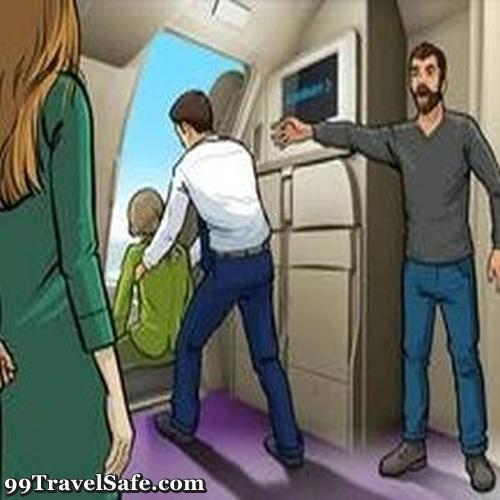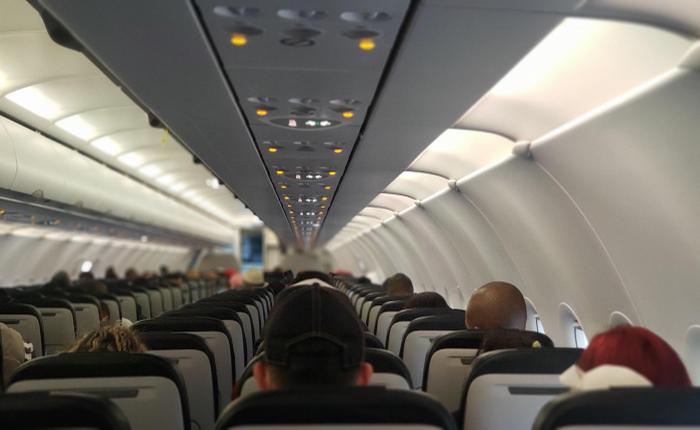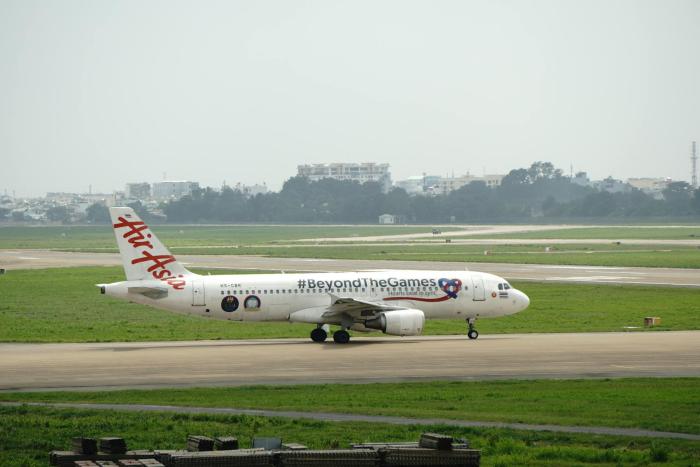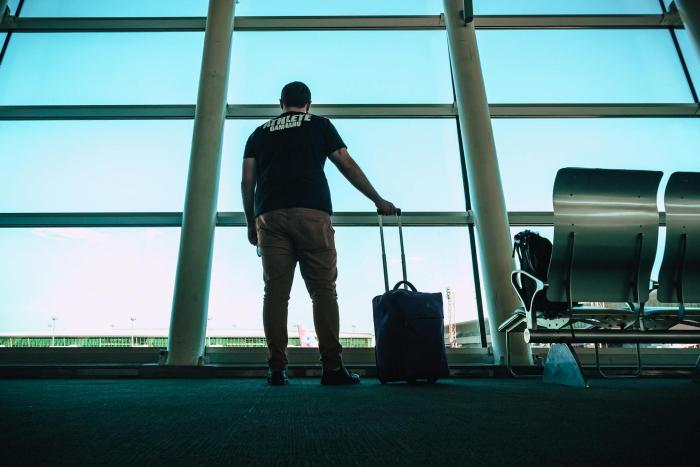

99TravelSafe.com
The Website For The Smart and Savvy Traveler
29 - In Case of Aircraft Evacuation!


Related Pages - Please Also See;
26 - Cabin Pressure During Air Travel
27 - Risk of Blood Clots (Thrombosis) During Air Travel
28 - Preventing Thrombosis Injury During Air Travel
29 – In Case of Aircraft Evacuation
30 – How to Survive an Air Crash
Safety of Air Travel by Unaccompanied Minors (Children Traveling Alone by Air)
Safety of Travelers at Airports
In Case of Aircraft Evacuation Emergency!


IF Your Flight Has To Make An Emergency Landing:
Leave your possessions behind
Stay low!
Proceed to the nearest front or rear exit - count the rows between your seat and the exits
Follow floor lighting to exit
Jump feet first onto the evacuation slide. Do NOT sit down to slide!
Place arms across your chest, elbows in, and legs and feet together. Remove high-heeled shoes
Exit the aircraft and clear the area
Remain alert for emergency vehicles
Never return to a burning aircraft!


More of In Case of Aircraft Evacuation Emergency!


Knowing the nearest exit in advance (of any emergency) can save precious time and even your life!
Review the safety card in your seat pocket. Knowing the procedures ahead of time can be very useful
Even for a frequent flyer, listening to the safety briefing could provide vital information specific to your aircraft
Flight attendants are trained for emergencies. Follow their instructions very carefully!
Staying calm is of paramount importance. Panic can slow down the evacuation process and lead to disastrous consequences
In an emergency, every second counts. Exit the plane quickly LEAVE YOUR BELONGINGS BEHIND
Be aware of your surroundings
Assist others whenever possible!
Being prepared and aware can significantly improve your chances of survival and a safe evacuation


In Case of Aircraft Evacuation - A Summary!


An emergency evacuation is the urgent, mandatory process of abandoning an aircraft, often using escape slides, to ensure safety from life-threatening events like fires or crashes. The key to a successful evacuation is listening to and trusting flight attendants, who are trained to lead the process. Passengers must leave belongings behind to avoid delays, as time is critical and fatalities often result from smoke, fumes, and heat after impact, not the impact itself
What You Should Do During an Emergency Evacuation
1. Listen to the Crew:
Flight attendants are the primary authorities during an emergency; their instructions are vital for safety
2. Pay Attention to Safety Briefings:
Learn the locations of emergency exits and how to operate them during the safety demonstration at the beginning of every flight
3. Leave Your Belongings:
Your luggage, phone, and other items are never worth the risk. Retrieving them slows the evacuation and can cause fatalities, according to Divers Alert Network
4. Move Quickly but Safely:
Move with controlled urgency to exit the aircraft, but avoid pushing or rushing to prevent injuries to yourself and others
5. Stay Calm:
Panic can lead to confusion and hinder the evacuation process. Take deep breaths and focus on following instructions
Why Evacuations Are Critical
Safety First:
The goal is to get everyone off the plane quickly and safely.
Time is Crucial:
Aircraft are certified for rapid evacuation (90 seconds or less with half the exits blocked) because delays are extremely costly in terms of injuries and lives lost
Secondary Dangers:
Many fatalities and injuries occur due to fire, smoke, and toxic fumes rather than the initial impact


